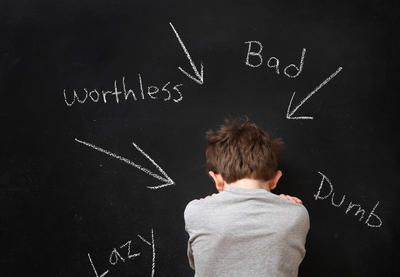Crazy. Stupid. Idiot. Nutty. Looney tunes. Lame. Nut case. Deaf. Dumb. Paralyzed. Blind. Bipolar. OCD. “Cuckoo for Cocoa Puffs.” Off meds.
I cringe when I hear casual use of these terms and so many others. My visceral response is not an exercise in “political correctness.” Rather, it is an effort at consciousness-raising and an invitation to hear and experience the world through someone else’s reality.
Recent news stories of suicides, police shootings, mass shootings and cars driving into crowds have resulted in recurring conversations about the connections between violence and mental illness. Yet, there is no proven correlation between the two. Even as we engage in heated debates on the n-word and work to eradicate the r-word, ableist language is everywhere, from Beyoncé’s “Crazy In Love” to Arizona’s “Stupid Motorist Law” to everyday conversations with everyday folks. Why is it so difficult to see that using these words as pejoratives is just as problematic as the once-popular put-down “That’s so gay”?
Despite the reality that nearly one in five Americans has a disability, the fight to extend human dignity to people with disabilities seems an uphill battle. We live in a culture that systematically devalues individuals with disabilities. This group is disproportionately subject to discrimination, underrepresentation and criminal violation. And while these issues may seem far more significant than the problems of labels and slurs, the common language of ableism contributes to a state in which the dehumanization of people with disabilities is culturally acceptable.
In “Doing Social Justice: Thoughts on Ableist Language and Why It Matters,” Rachel Cohen-Rottenberg clearly explains the impact of ableist words:
"The stories that disability metaphors tell are deeply problematic, deeply destructive, and deeply resonant of the kinds of violence and oppression that disabled people have faced over the course of many centuries. They perpetuate negative and disempowering views of disabled people, and these views wind their ways into all of the things that most people feel are more important. If a culture’s language is full of pejorative metaphors about a group of people, that culture is not going to see those people as fully entitled to the same housing, employment, medical care, education, access, and inclusion as people in a more favored group."
We can and must improve, but we have to care enough to do better.
There are many resources to help people avoid ableist language and use alternatives, but it takes caring about others’ experiences to really make a change. Ask those with mental or physical illnesses how they feel about abelist language, and many will tell you they find these terms disrespectful and insulting. “If you’re using a word as a synonym for something negative,” educator Rashelle Chase Hibbard writes, “then you are, by default, ascribing that negative connotation to the original meaning of the word.”
If those with disabilities tell me these words are problematic, then I, for one, am listening.
I hope you are, too. This list of useful and informative sites can help:
- Why Ableist Language Is Harmful
- 15 Crazy Examples of Insanely Ableist Language
- “Stupid’” Is an Ableist Slur: Breaking Down Defenses around Ableist Language and Liberating Our Words
- Challenging Ableist Language
Lester is Foundation Professor of English and the founding director of Project Humanities at Arizona State University.
